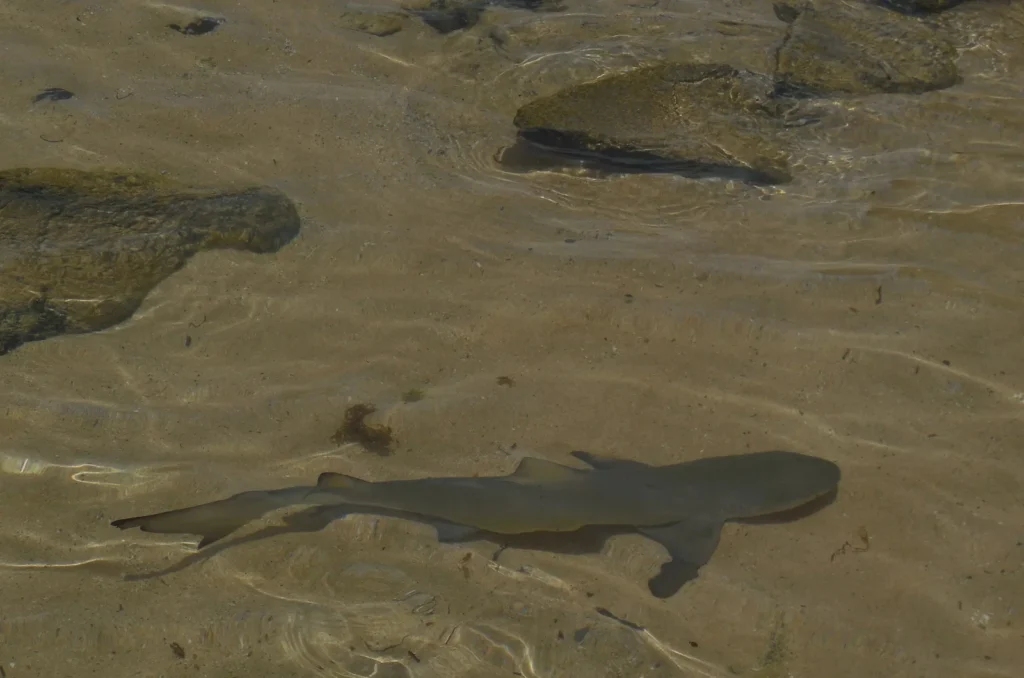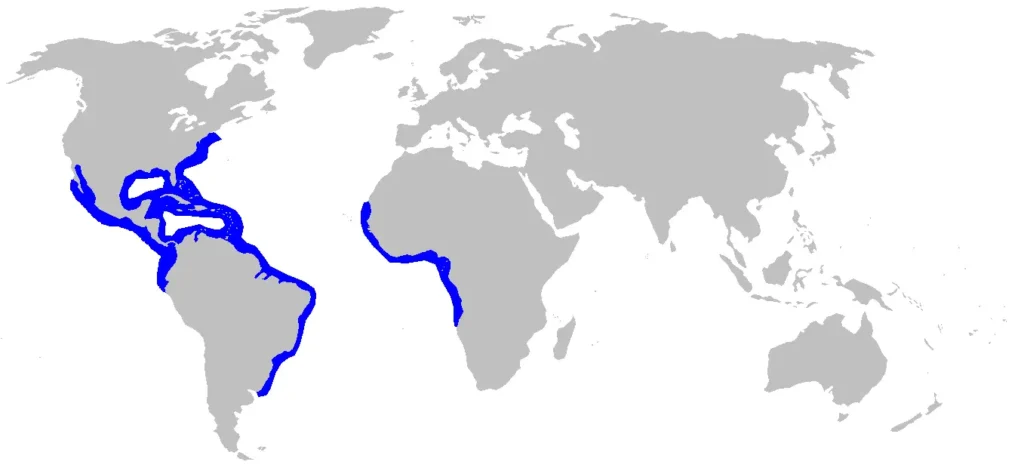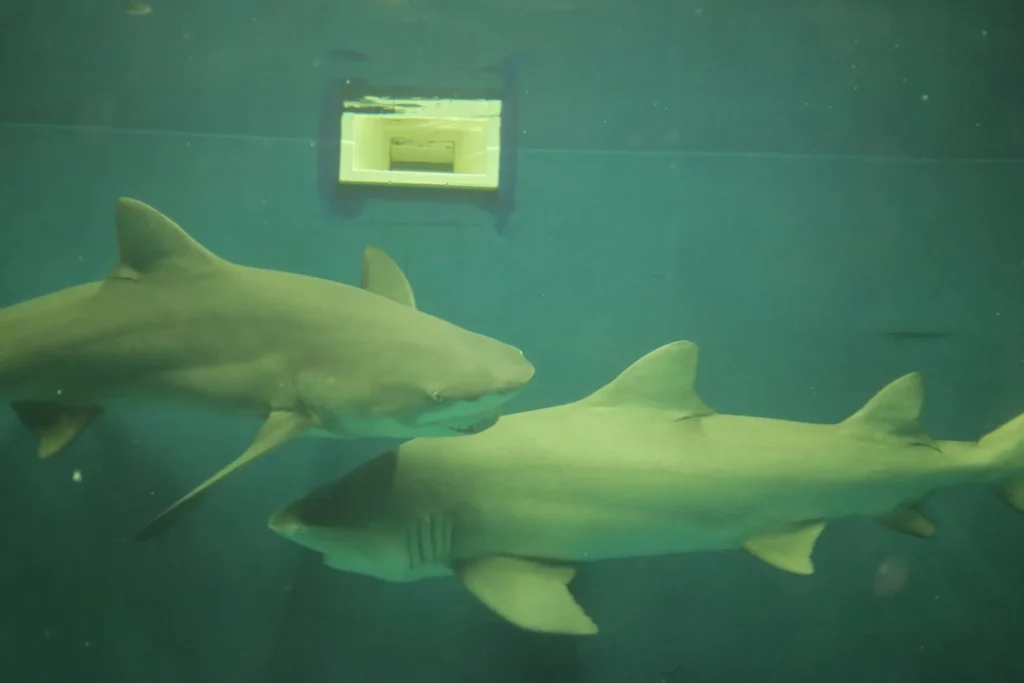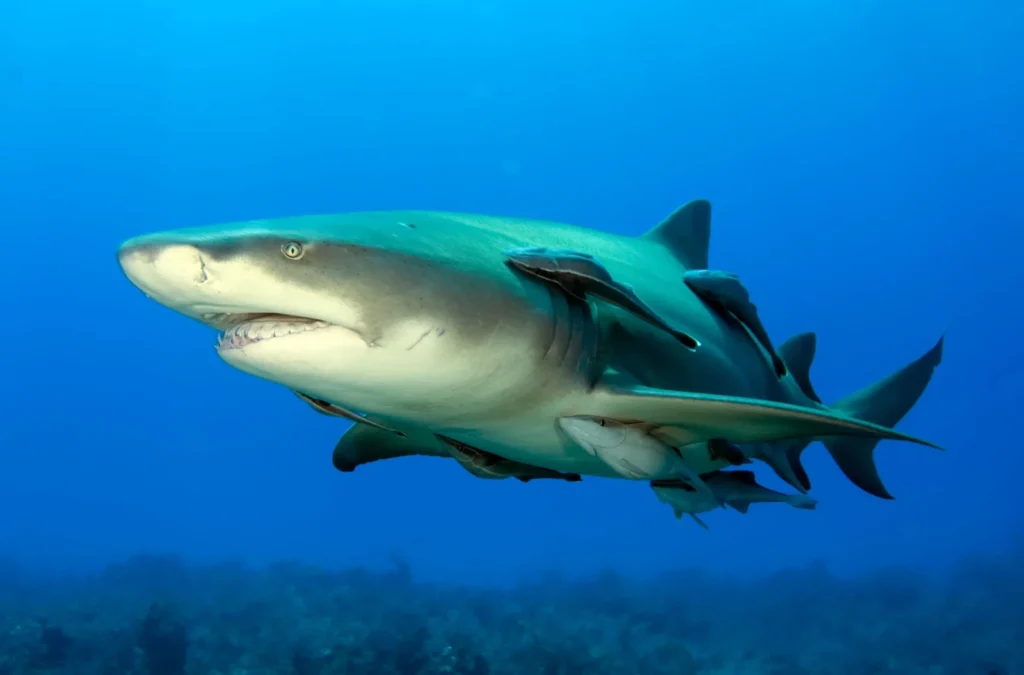Lemon Shark Atlantic (Negaprion brevirostris)- one of the most interesting and studied sharks in the world. Its yellowish coloration not only helps it disguise itself among the sandy bottom, but also gives this species its name.
🔹 What's so special about the lemon shark?
✔ It has excellent vision and a sensitive electroreceptor system for detecting prey
✔ It can reach a length of more than 3.5 m
✔ Viviparous, gives birth to up to 17 cubs at a time
✔ Able to withstand low oxygen levels and adapt to brackish waters
✔ A well-known object of research on shark behavior due to its good adaptation to captivity
This predator is not only an important predator of ocean ecosystems, but also part of the culture of coastal peoples. Let's take a closer look at this sea hunter!

Scientific classification
🔬 Lemon Shark taxonomy:
✔ The Kingdom: Animals (Animalia)
✔ Type: Chordal (Chordata)
✔ Class: Cartilaginous fish (Chondrichthyes)
✔ Row: Carcharine-like (Carcharhiniformes)
✔ Family: Grey sharks (Carcharhinidae)
✔ Gender: Lemon Sharks (Negaprion)
✔ View: Negaprion brevirostris
📌 Interesting!
There is another close view – Pacific Lemon Shark (Negaprion acutidens), which lives in the Indo-Pacific region.
Appearance and features of the anatomy
🔹 Main Features:
✔ Yellowish-brown coloration, which perfectly masks a shark on a sandy bottom
✔ Massive body and broad muzzle with a blunt rounded nose
✔ Big eyesproviding excellent vision even in muddy water
✔ Two dorsal fins of almost equal height - a rare feature among sharks
✔ Large teeth with serrated edges for efficient capture of prey
🔹 Sizes:
✔ Average length: 2.5-3 m
✔ Maximum length: 3.7 m
✔ Average weight: 90-150 kg
✔ Maximum weight: 183 kg
📌 Interesting!
The lemon shark may look slow, but thanks to its powerful tail, it is able to perform rapid jerks during an attack.

Range and habitat
🌍 Where does the Atlantic lemon shark live?
✅ Western Atlantic:
* From the US coast (Florida, South Carolina) to Brazil
✅ Eastern Atlantic:
* Off the coast of West Africa
✅ Caribbean Sea and Gulf of Mexico
🔹 Living conditions:
✔ Prefers warm waters (from 20°C and above)
✔ Occurs at depths of from 1 to 90 m
✔ Likes sandbanks, mangroves and coral reefs
✔ Can log in to brackish and even fresh waters rivers and lagoons
📌 Interesting!
Young lemon sharks often congregate in coastal mangroves, where they find shelter from predators.
Life cycle and reproduction
🔹 Life cycle:
✔ Puberty: males - at 11-12 years, females-at 12-16 years
✔ Life span: 25-30 years old
✔ It leads a nocturnal lifestyle, rests at the bottom during the day

🔹 Reproduction:
✔ Happening every 2 years
✔ The female gives birth 5-17 live cubs
✔ Pregnancy continues 10-12 months
✔ Newborn sharks have a length of 60-70 cm
📌 Interesting!
Lemon sharks do not care for their offspring – the young immediately look for food on their own.
Food and hunting
🔹 What does the lemon shark eat?
✅ Basic diet:
* Fish (stingrays, groupers, perches)
* Cephalopods (squid, octopus)
✅ It can attack small sharks and even seabirds
🔹 Hunting strategy:
✔ Uses electroreceptors (ampoules of Lorenzini) for detecting prey under the sand
✔ Hunts at nightwhen victims are less careful
✔ Can attack suddenly, using the tail for a fast dash
📌 Interesting!
Lemon Shark very careful but it doesn't attack people without provocation.

Enemies and threats
🔹 Natural enemies:
Great big sharks (tiger shark, white shark)
Killer Whale Braid
🔹 Main threats:
❌ Industrial catch - through meat, fins and liver
❌ Loss of the natural environment (destruction of mangroves)
❌ Ocean pollution
📌 Interesting!
Lemon shark is under threat due to finning - illegal shark fishing for the sake of their swimmers.
Meaning for a person
🌍 Role in nature and science:
✔ Regulates the number of small fish and shellfish
✔ One of the most important objects of shark behavior research
🔹 Contacts with people:
✔ Lemon Shark non-aggressive, but it can bite in response to a threat
✔ Often found among divers - many people are looking for the opportunity to swim with her
✔ Used in marine aquariums thanks to captivity resistance
📌 Interesting!
These sharks are able to memorize information and even learn new skills!
Conclusion
🦈 The Atlantic lemon shark is a unique inhabitant of the ocean, which combines strength, adaptability and an important ecological role.
Its bright coloring, effective hunting skills and interesting behavior make it one of the most interesting representatives of sharks.
💡 Would you like to go swimming with a lemon shark? 🌊😃
